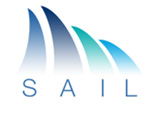As SAIL representative, I am present at the Future Networks 7th Concertation meeting of the FP7 which was hold in EU commission facilities in Brussels on February 10th and 11th. The first morning session of the plenary focused on standardisation and how the EU research project can have an impact and anchor their results in the standardisation bodies. Many of the standard development organisations (SDO) were mentioned (ITU, IEEE, IETF, ETSI, ITU, 3GPP) and experience from many research projects in those SDO were reported. Two issues have retained my attention: long standardisation process and using the number of standard contributions as a measure of the success of a research project.
The time required to go from new ideas introduction up to standard approval has been raised as an issue in many reports. The total time elapsed for the end to end standardisation process exceeds the duration of most EU-projects. Nevertheless, research projects efforts in SDO are not useless. Even if the process is not completed during the scope of the project, this effort can be use to open minds to new ideas and trace the path for succeeding projects or the industrial partners to takeover and bring the research results to the market. I believe that in the case of the SAIL project, we should build on the work that was done in ancestor and other ongoing projects such as 4WARD.
Regarding the number of standard contributions as a measure of the success of a project, I believe that it is not enough to push our results in the standardisation bodies, but it is crucial that we get the support from the industry to bring the results to the market. To succeed in bringing results to the market, a tight collaboration between academia, equipment vendors, operators and applications providers is vital to ensure that we provide the right solution to the right problem and that this solution can be implemented in a reasonable way. SAIL consortium provides this end to end view but still has to work with other Future Networks established players.
As a conclusion, I want to emphasize the necessity of the standardisation as a mean of disseminating what we achieved in SAIL, as a continuation of the work initiated by other closely related research work and also to pave the way to the industrialisation of our results. With the strong consortium put in place for the SAIL projects, we have excellent conditions to bring this mission to success.
Disclosure and disclaimer: I am engaged in the SAIL project, on behalf of Ericsson. However the opinions expressed in this post are my personal, and not those of the SAIL project or my employer.







